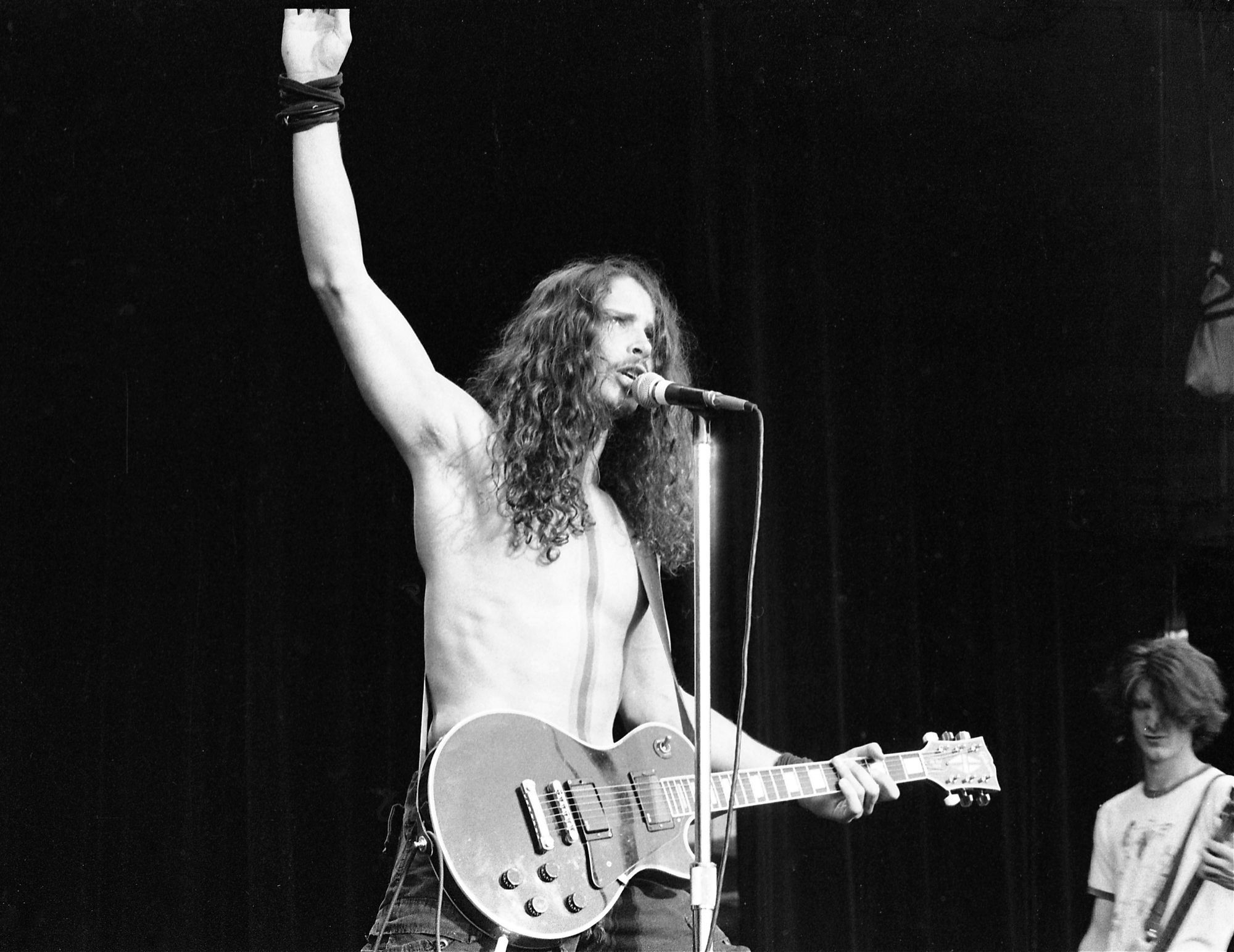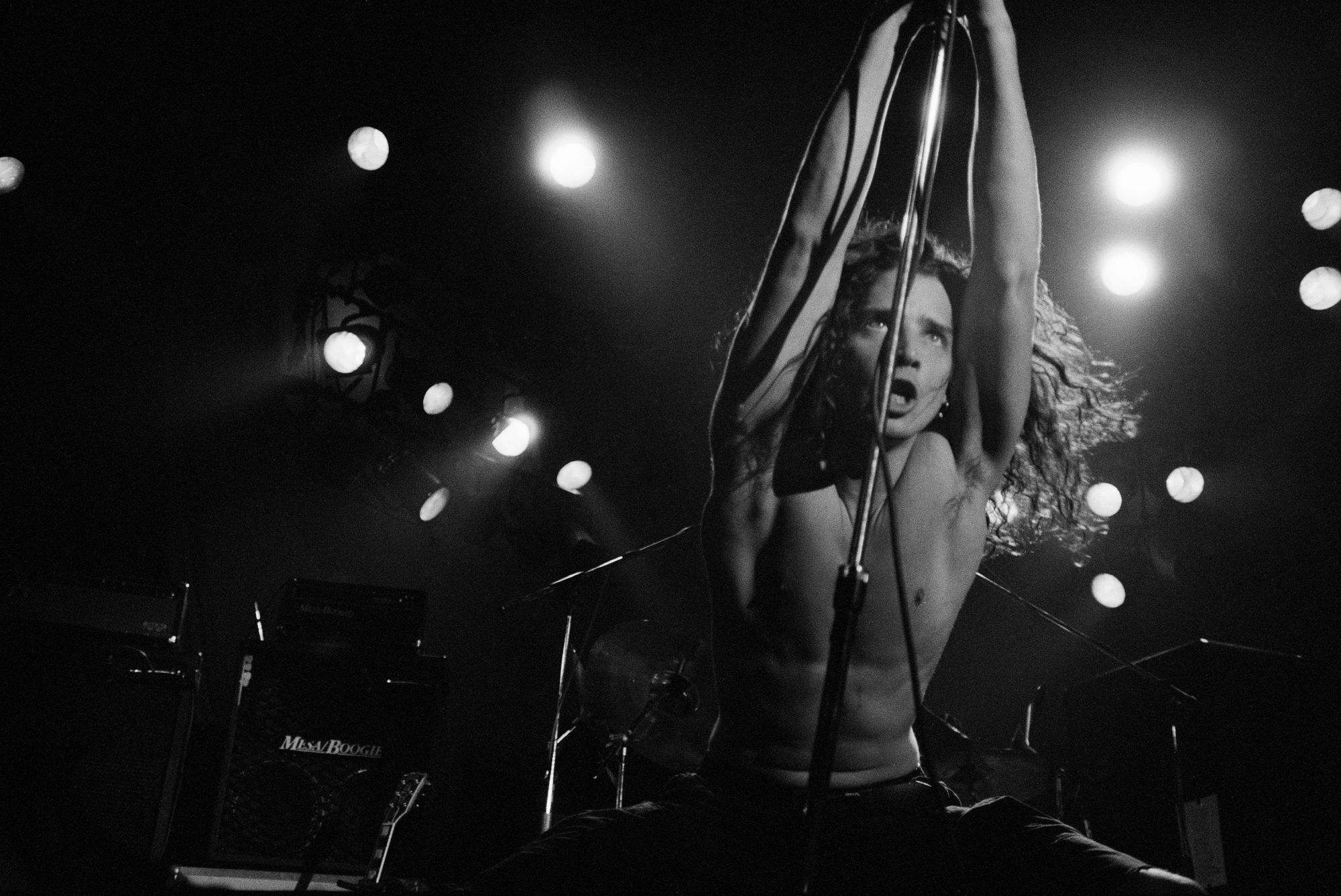When you can sing like that it would be criminal not to
Chris Cornell's Voice Was a Once-in-a-Lifetime Sound

Chris Cornell and the band he rode to fame, Soundgarden, were always something of a dichotomy. Birthed from the Seattle punk scene, but clothed in the trappings of metal ambition, they never quite fit squarely into the grunge marketing push they found themselves in by accident of geography and acquaintance. Strangely, in his passing, Cornell has further cemented that tenuous connection: the ones who left us too soon.
The early '90s were a confusing time for young music fans. It's hard to understand what the big deal was today, when our every interaction is buried under five concentric layers of irony poisoning, but the ascendant slacker ethos at the time and the cultural wave of ennui was enough to level an impressionable mind. There was the half-assed slipshod aesthetic of Nirvana, the swooning chaotic doom of Alice in Chains, and the last vestiges of hair metal's glittery corpse haunting everything from beyond the grave.
Among it all, Soundgarden and Cornell stood out, specifically because of their unapologetic musicianship and their willingness to experiment—but also because Cornell in particular was triumphantly earnest. What else do you call a longhair striding into a cornfield to deliver the most impassioned belting you've ever heard in your life in a song about inequality in a band formed as a tribute to a dead friend? You couldn't get away with that sort of thing today, and you certainly didn't see much of it back then. But when you did, you sat up and listened. You inched a little closer to the TV. You wanted to climb into that cornfield yourself.
Musicianship itself—mastery of your instrument—goes in and out of favor with each era, but there was a particularly uneasy relationship with it at the time Soundgarden started showing up on MTV. Someone who was that good at their instrument somehow seemed untrustworthy. Shredding had gone out of fashion.
But among Soundgarden's lineup of heavy hitters, among the entire scene at large, there was perhaps no one who had such a mastery of his instrument as Cornell. When you can sing like that, it would be criminal not to. It sounds like the casual murmurings of a stoned guy in the crowd to say it in writing, but man, Cornell could shred.
"I think, and this is now with some distance in listening to the records, but on the outside looking in with all earnestness I think Soundgarden made the best records out of that scene," Cornell said in an interview a few years back. "I think we were the most daring and experimental and genre-pushing really, and I'm really proud of it."
So, he wandered into the cornfield, and he wailed, and those of us still having our cultural identities shaped sat in front of the television transfixed.
While it was Temple of the Dog's "Hunger Strike" that first did it for me, Cornell's catalogue is filthy with such displays of power and precision, from his solo work to his time with Audioslave, to this recent, heartrending cover of "Nothing Compares 2 U."
The latter work with Audioslave never quite amounted to cool, but nothing can be cool forever. What it remained throughout was the epitome of earnest. When you can sing like that, it would be impossible not to.
A voice like his doesn't let you tune it out. It is a force that grabs you. It gets inside of you. Listen to "Outshined" or "Slaves & Bulldozers" from their 1991 breakthrough Badmotorfinger now. Seriously, go do it now. The human body shouldn't be able to do that sort of thing. But when it can, it would be a shame for it not to.

